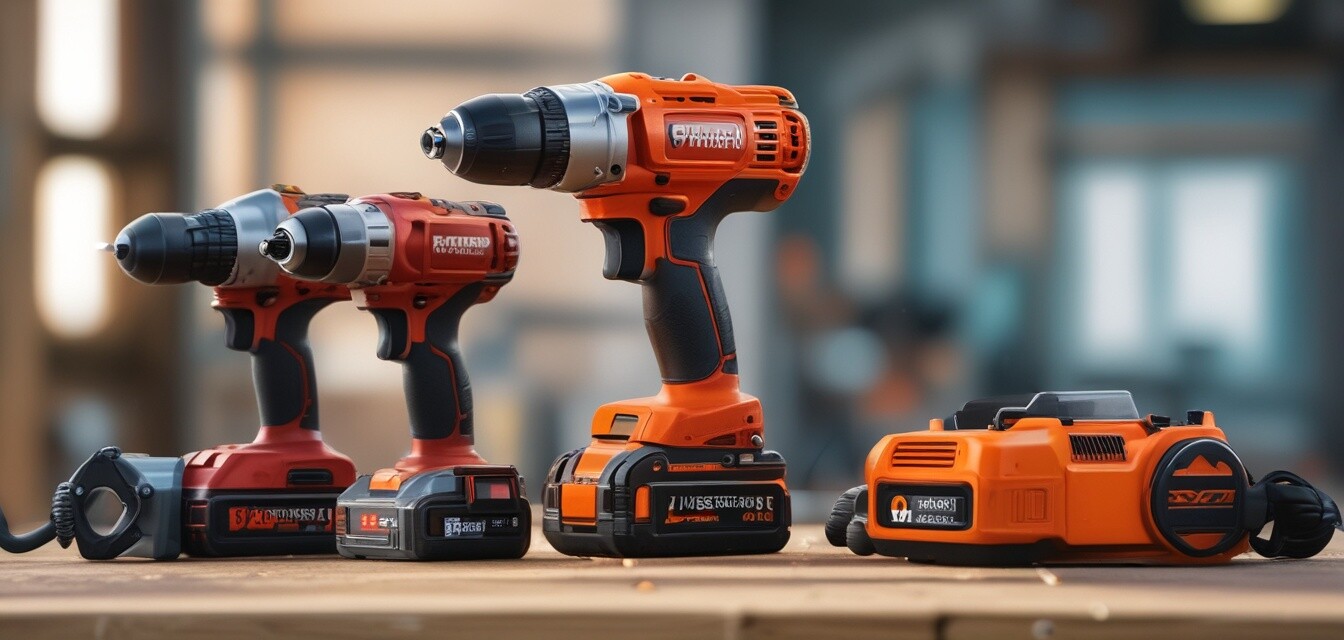
Comparing Electric vs. Battery-Powered Tools
- Electric tools are generally more powerful and suitable for heavy-duty tasks.
- Battery-powered tools offer portability and convenience, ideal for DIY enthusiasts on the go.
- Consider your project's requirements, available power sources, and specific tool features when choosing between the two types.
When it comes to choosing power tools, the decision between electric and battery-powered options can be a challenge. Both types come with their own sets of advantages and disadvantages, and your choice should ideally align with your specific needs. In this article, we will analyze the key features of each tool type, their pros and cons, and provide insights that will help you make an informed decision for your next project.
Understanding Electric Tools
Electric tools are powered through a direct connection to an electrical outlet. They provide consistent power for extended periods and are typically more suited for heavy-duty tasks.
Key features of electric tools
- Continuous power supply.
- Higher performance levels.
- Generally lower in weight compared to large battery packs.
- Variety of attachments available for various jobs.
Exploring Battery-Powered Tools
Battery-powered tools, often referred to as cordless tools, use rechargeable batteries for their operation. They are designed for portability and ease of use.
Key features of battery-powered tools
- Portable and easy to use in various locations.
- Elimination of cords enhances mobility.
- Many models offer quick charge times and extended battery life.
- Lightweight and user-friendly designs.
Comparison Table: Electric vs. Battery-Powered Tools
| Feature | Electric Tools | Battery-Powered Tools |
|---|---|---|
| Power Source | Direct electrical connection | Rechargeable batteries |
| Portability | Limited; requires power outlet | Highly portable; usable anywhere |
| Performance | Generally higher for heavy-duty tasks | Suitable for light to medium tasks |
| Weight | Can be heavier due to motor and cords | Lighter due to absence of cords |
| Maintenance | Less prone to battery issues | Battery replacements may be required |
Pros and Cons of Electric Tools
Pros
- Consistent power output.
- Better suited for heavy-duty tasks.
- No need to recharge during use.
- Usually longer lifespan with proper care.
Cons
- Limited mobility due to cords.
- Requires a power source nearby.
- Heavy and cumbersome in some models.
Pros and Cons of Battery-Powered Tools
Pros
- Great for outdoor and remote projects.
- No cords to trip over.
- Generally lighter and easier to handle.
- Many modern battery options include long-lasting and fast-charging batteries.
Cons
- Limited runtime based on battery life.
- May lack power compared to electric counterparts.
- Batteries can be expensive to replace.
Making the Right Choice for Your Needs
When deciding between electric and battery-powered tools, think about your specific needs and work environment. Here are some questions to consider:
- Will you be working in one location where power outlets are available?
- Do you need the tool to be portable for various job sites?
- Are you focusing on heavy-duty tasks or lighter projects?
- What is your budget for tools and maintenance costs?
For contractors and DIY enthusiasts, being informed about both options can lead to smarter choices. If you want to learn more about specific categories of tools, check our guides on Angle Grinders or Cordless Drills.
Key Takeaways
Ultimately, the decision between electric and battery-powered tools hinges on your unique requirements, preferences, and budget. Be sure to assess the advantages and disadvantages of each type as you look to equip yourself with the best tools for your projects.